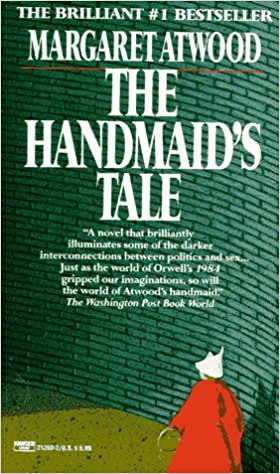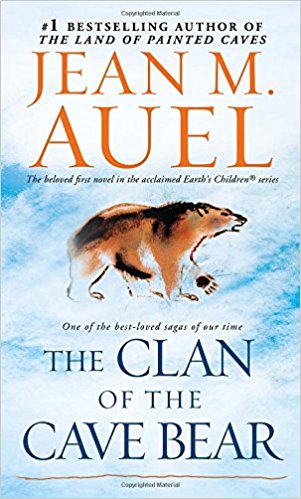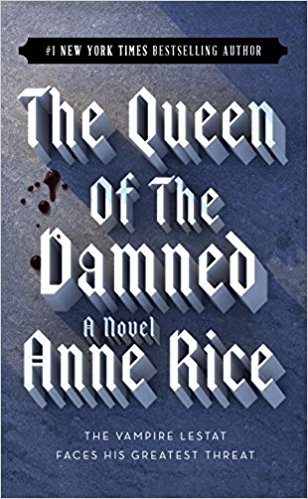
A Cave Woman, a Vampire Queen, and a Human Broodmare Walk into a Bar
For some reason, I’ve been thinking quite a bit lately about which books influenced me the most. I’ve read a lot of books over the past forty-odd years, so many I’ve forgotten quite a few, but the same three books keep popping into my head. Each has had a lasting impact on me in some way, and this is, I believe, why I point to them now.
Let’s start with the one my mother caught me reading and promptly took away from me…
I’ve made no secret of my childhood reading habits. I carried a book with me wherever I went, read in class and out, and when I ran out of reading material, dove into whatever was handy, including telephone directories, encyclopedias (most notably, the entire Childcraft set), and other people’s home libraries.
My mom and dad’s books weren’t safe from my voracious appetite by any means. Through them, I was exposed to the works of Stephen King, Dean Koontz, Louis L’amour, Zane Gray, Fern Michaels, Danielle Steel, V.C. Andrews, and other authors I’ve long since forgotten.
One day, I ran across The Clan of the Cave Bear by Jean M. Auel. I’d always been fascinated by the past, the farther back the better, an interest fostered by my brother’s occasional ramblings to search for arrowheads and potsherds in nearby fields. Not knowing the nature of some of the scenes in Auel’s novel, and truthfully not caring, I read it openly, a mistake I promise you I never made again.
After Mom made me stop reading (I was maybe twelve when she caught me), it took ages for me to return to Earth’s Children. Once I did, I read as much of the series as I could get my hands on at the time. What’s always stayed with me are the ideas Auel presented about prehistoric man and the rise of Cro-Magnon, the different developing cultures, and the interactions between these early humans and Neanderthal. The level of research Auel put into each story is astounding, and in most cases, she nailed it head on.
But I was also fascinated by her perspective on what we now call “gender roles.” At the time, it was (and still often is) quite popular to assign prehistoric women to an inferior role in interpersonal, sexual, and other relations, in spite of ample evidence found among similar, more modern tribes and clans that women may have held more equal roles.
Auel knocked that patriarchal outlook on its hiney, and in so doing, changed my perspective on the roles women play in modern society. The Earth’s Children Series also nurtured my interest in history and prehistory, and in archaeology as a career, which in turn eventually led to the initial ideas that sparked the Daughters of the People Series.
I was fortunate enough to be able to spend real, quality time with both my grandmothers when I was younger. They were very different people, but they also had much in common. They were both big readers, for example, and they were also each deeply interested in preserving their families’ respective heritages.
My grandmothers were the first people to encourage my interest in genealogy, and because of that, it morphed from a hobby into an obsession and finally into a true profession. I’ve since used the skills gained through those pursuits to add depth and nuance to my fiction, not to mention ferreting out potential plot points. I used those skills again during the writing of The Gathering Storm (Daughters of the People, Book 6), which focused in part on the intersection of heritage and DNA.
Genealogy is such a passion, I tend to notice when it pops up in unexpected places, as it does in Anne Rice’s The Queen of the Damned. I haven’t read this one in a while, but there’s one scene in which someone (Maharet?) explains that she only keeps track of the descendants of females because, to paraphrase, a woman always knows when she’s had a child, but a man can never be certain.
That one scene heavily influenced the way I conduct genealogical research, and it’s why I’m so skeptical during that pursuit. It also fed a small fascination with matrilineal societies, and y’all know where that led!
When Trump won the presidency, the Left’s perpetually hysterical Outrage Crowd revived interest in The Handmaid’s Tale by Margaret Atwood. I was introduced to this classic work of dystopian literature (read: Alternate History) in high school. Like Flowers for Algernon, it was required reading.
As with The Clan of the Cave Bear, what struck me about this story is the different levels of agency demonstrated by the female characters, particularly the tiny rebellions of women cast in seemingly slave-like roles. It’s popular among a certain crowd to decry the level of control those in such situations have over their own lives, against any evidence presented to the contrary.
Yet, such individuals do have control and will exert that control in whatever way they can. That’s simply human nature, a fact many who are politically progressive have forgotten, for the expediency of their cause du jour. Perhaps if they studied history in greater depth, they would relearn this important lesson.
And Others
I promise, when I compiled my incredibly short list of influential books, I didn’t deliberately choose those crafted by women about women. I could easily have named others, such as The Old Man and the Sea, Flowers for Algernon, Of Mice and Men, or Ender’s Game and Over Sea, Under Stone…
Actually, the list of stories that deeply impacted my thinking is pretty long. I chose the three highlighted books not necessarily because they influenced me as a writer, although they did, but because those three actually changed the way I think, rather than merely providing fodder for thought.
Do you have similar experiences with literature? Share a book with me!

